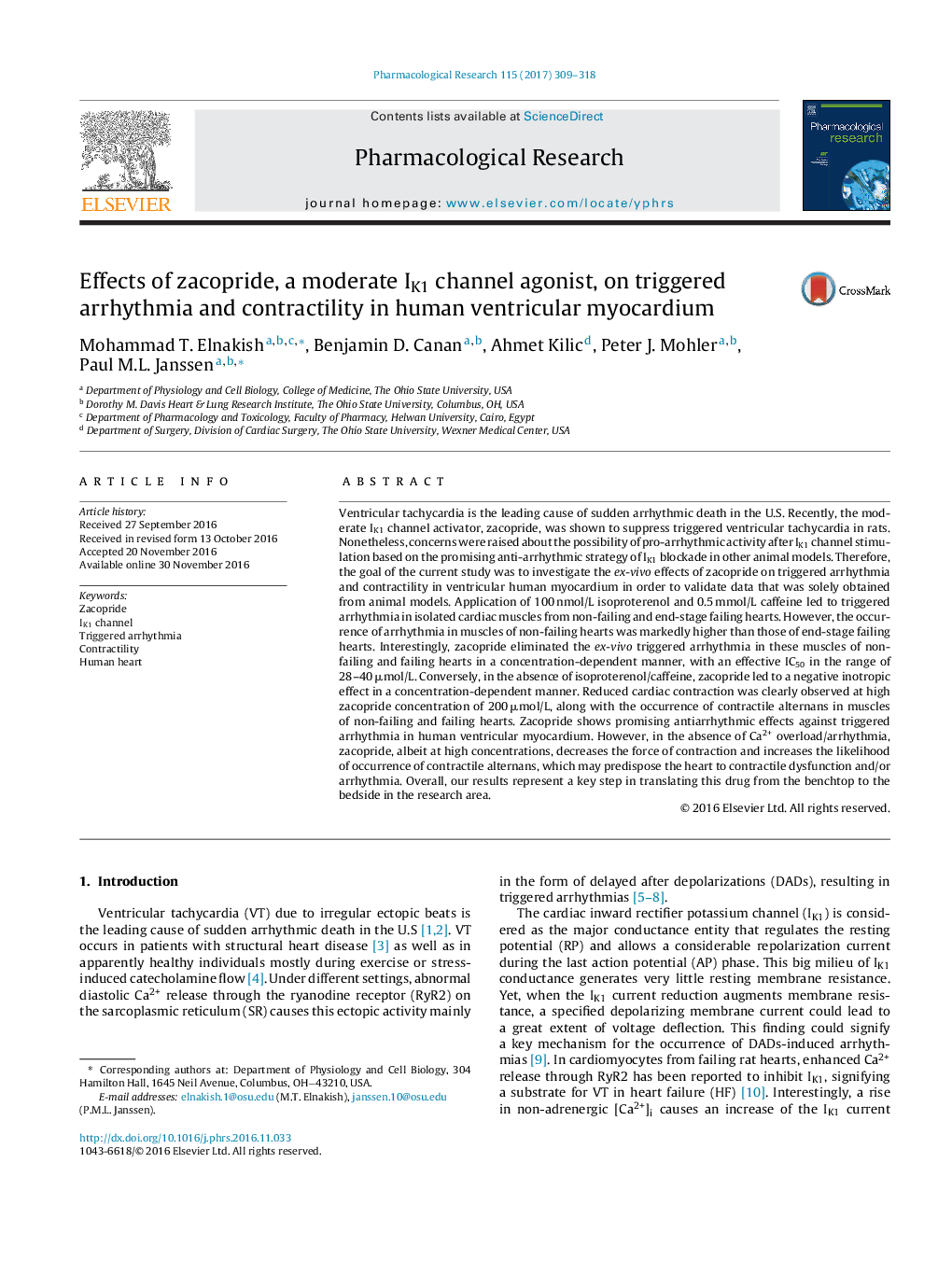| کد مقاله | کد نشریه | سال انتشار | مقاله انگلیسی | نسخه تمام متن |
|---|---|---|---|---|
| 5557537 | 1560826 | 2017 | 10 صفحه PDF | دانلود رایگان |

Ventricular tachycardia is the leading cause of sudden arrhythmic death in the U.S. Recently, the moderate IK1 channel activator, zacopride, was shown to suppress triggered ventricular tachycardia in rats. Nonetheless, concerns were raised about the possibility of pro-arrhythmic activity after IK1 channel stimulation based on the promising anti-arrhythmic strategy of IK1 blockade in other animal models. Therefore, the goal of the current study was to investigate the ex-vivo effects of zacopride on triggered arrhythmia and contractility in ventricular human myocardium in order to validate data that was solely obtained from animal models. Application of 100 nmol/L isoproterenol and 0.5 mmol/L caffeine led to triggered arrhythmia in isolated cardiac muscles from non-failing and end-stage failing hearts. However, the occurrence of arrhythmia in muscles of non-failing hearts was markedly higher than those of end-stage failing hearts. Interestingly, zacopride eliminated the ex-vivo triggered arrhythmia in these muscles of non-failing and failing hearts in a concentration-dependent manner, with an effective IC50 in the range of 28-40 μmol/L. Conversely, in the absence of isoproterenol/caffeine, zacopride led to a negative inotropic effect in a concentration-dependent manner. Reduced cardiac contraction was clearly observed at high zacopride concentration of 200 μmol/L, along with the occurrence of contractile alternans in muscles of non-failing and failing hearts. Zacopride shows promising antiarrhythmic effects against triggered arrhythmia in human ventricular myocardium. However, in the absence of Ca2+ overload/arrhythmia, zacopride, albeit at high concentrations, decreases the force of contraction and increases the likelihood of occurrence of contractile alternans, which may predispose the heart to contractile dysfunction and/or arrhythmia. Overall, our results represent a key step in translating this drug from the benchtop to the bedside in the research area.
138
Journal: Pharmacological Research - Volume 115, January 2017, Pages 309-318